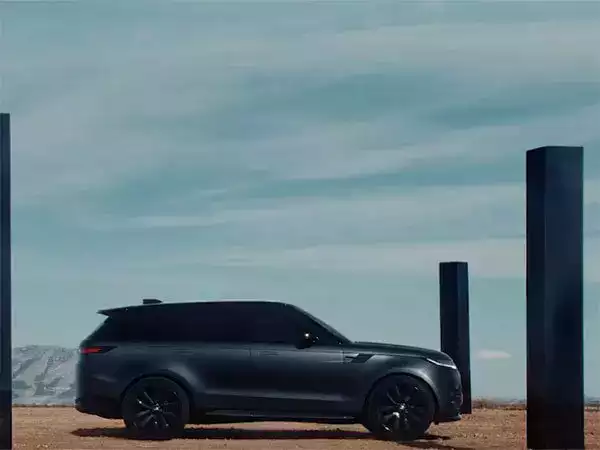 Carmakers including JLR are having trouble complying with the zero-emission vehicle mandate that took effect this year in the UK, requiring that 22% of the new cars each manufacturer sells be non-polluting.
Carmakers including JLR are having trouble complying with the zero-emission vehicle mandate that took effect this year in the UK, requiring that 22% of the new cars each manufacturer sells be non-polluting.Monday came and went without much fuss about a major bit of British automotive history: Jaguar, the go-to car marque for prime ministers and members of the royal family, stopped selling any new vehicles in the UK.
The storied British brand is going dormant until 2026, when it will reemerge selling only higher-end electric vehicles. Until then, Tata Motors Ltd.-owned Jaguar Land Rover won’t ship any new Jaguars to UK dealers. All Jags still left in inventory are now classified as pre-owned, no matter the number on the odometer, according to a spokesperson.
JLR laid plans to take Jaguar in an EV-only direction in early 2021, only months after then-Prime Minister Boris Johnson announced plans to phase out sales of new petrol or diesel cars by the end of the decade. This transition has proven more complicated than envisioned, both for the company and the country.
Carmakers including JLR are having trouble complying with the zero-emission vehicle mandate that took effect this year in the UK, requiring that 22% of the new cars each manufacturer sells be non-polluting. Just 18% of new cars registered through October were battery-electric vehicles, with many companies coming up short of that share.
Those firms will be able to avoid penalties by buying credits from over-achieving competitors, such as Tesla Inc., and by offsetting early-year shortfalls with over-compliance years from now.
Jaguar ended production of XE saloons, XF sedans and F-Type sports cars in the UK earlier this year. The assembly of E-Pace and I-Pace sport utility vehicles in Austria will cease from December, and the remaining output will go to markets outside the UK. This means Brits will go without any new Jags for the first time since World War II.
While JLR doesn’t publicly break down earnings by brand, Land Rover has long been the bigger generator of the group’s profits. Executives decided Jaguar needed a complete refresh and will provide a sneak peek of where it’s headed on Dec. 2 at Miami Art Week. The new range of luxury EVs aren’t expected to launch until the summer of 2026, at the earliest, which is later than initially planned.
Other carmakers have continued to make and sell gas-powered vehicles until their electric models are ready. JLR has watched rival manufacturers rush out EVs that have been unpopular with consumers and decided to take more time to get the product right, Chief Executive Officer Adrian Mardell said last week.
“To be successful in any market — but particularly in this new market at this point in time with BEVs — you really can’t take any compromises on the vehicle you put into the marketplace,” Mardell told reporters on a Nov. 8 earnings call.
JLR will still manufacture F-Pace SUVs in the UK for export until the first quarter of 2026, slightly later than previously planned, Mardell said. He cautioned that the company will temper how much it spends on its electric-only brand.
“Our investment in Jaguar is and will be proportionate to the size and scale and opportunity we see in that business at this point,” he said. “There will be less investment in Jaguar than there was 10 years ago.”
